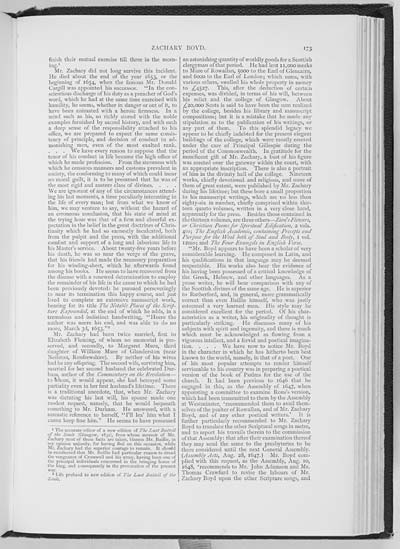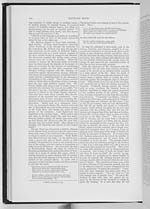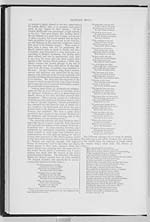173
finish their mutual exercise till three in the morn-
ing.1
Mr. Zachary did not long survive this incident.
He died about the end of the year 1653, or the
beginning of 1654, when the famous Mr. Donald
Cargill was appointed his successor. "In the con-
scientious discharge of his duty as a preacher of God's
word, which he had at the same time exercised with
humility, he seems, whether in danger or out of it, to
have been animated with a heroic firmness. In a
mind such as his, so richly stored with the noble
examples furnished by sacred history, and with such
a deep sense of the responsibility attached to his
office, we are prepared to expect the same consis-
tency of principle, and decision of conduct in ad-
monishing men, even of the most exalted rank.
. . . We have every reason to suppose that the
tenor of his conduct in life became the high office of
which he made profession. From the sternness with
which he censures manners and customs prevalent in
society, the conforming to many of which could incur
no moral guilt, it is to be presumed that he was of
the most rigid and austere class of divines. . . .
We are ignorant of any of the circumstances attend-
ing his last moments, a time peculiarly interesting in
the life of every man; but from what we know of
him, we may venture to say, without the hazard of
an erroneous conclusion, that his state of mind at
the trying hour was that of a firm and cheerful ex-
pectation in the belief in the great doctrines of Chris-
tianity which he had so earnestly inculcated, both
from the pulpit and the press, with the additional
comfort and support of a long and laborious life in
his Master's service. About twenty-five years before
his death, he was so near the verge of the grave,
that his friends had made the necessary preparation
for his winding-sheet, which he afterwards found
among his books. He seems to have recovered from
the disease with a renewed determination to employ
the remainder of his life in the cause to which he had
been previously devoted: he pursued perseveringly
to near its termination this happy course, and just
lived to complete an extensive manuscript work,
bearing for its title The Notable Places of the Scrip-
ture Expounded, at the end of which he adds, in a
tremulous and indistinct handwriting, "Heere the
author was neere his end, and was able to do no
more, March 3d, 1653."2
Mr. Zachary had been twice married, first to
Elizabeth Fleming, of whom no memorial is pre-
served, and secondly, to Margaret Mure, third
daughter of William Mure of Glanderston (near
Neilston, Renfrewshire). By neither of his wives
had he any offspring. The second wife, surviving him,
married for her second husband the celebrated Dur-
ham, author of the Commentary on the Revelation�
to whom, it would appear, she had betrayed some
partiality even in her first husband's lifetime. There
is a traditional anecdote, that, when Mr. Zachary
was dictating his last will, his spouse made one
modest request, namely, that he would bequeath
something to Mr. Durham. He answered, with a
sarcastic reference to herself, "I'll lea' him what I
canna keep frae him." He seems to have possessed
1 The accurate editor of a new edition of The Last Battell
of the Soule (Glasgow, 1831), from whose memoir of Mr.
Zachary most of these facts are taken, blames Mr. Baillie, in
my opinion unjustly, for having fled on this occasion, while
Mr. Zachary had the superior courage to remain. It should
be recollected that Mr. Baillie had particular reason to dread
the vengeance of Cromwell and his army, having been one of
the principal individuals concerned in the bringing home of
the king, and consequently in the provocation of the present
war.
2 Life prefixed to new edition of The Last Battell of the
Soule.
an astonishing quantity of worldly goods for a Scottish
clergyman of that period. He had lent 11,000 merks
to Mure of Rowallan, 5000 to the Earl of Glencairn,
and 6000 to the Earl of Loudon; which sums, with
various others, swelled his whole property in money
to � 4527. This, after the deduction of certain
expenses, was divided, in terms of his will, between
his relict and the college of Glasgow. About
�20,000 Scots is said to have been the sum realized
by the college, besides his library and manuscript
compositions; but it is a mistake that he made any
stipulation as to the publication of his writings, or
any part of them. To this splendid legacy we
appear to be chiefly indebted for the present elegant
buildings of the college, which were mostly erected
under the care of Principal Gillespie during the
period of the Commonwealth. In gratitude for the
munificent gift of Mr. Zachary, a bust of his figure
was erected over the gateway within the court, with
an appropriate inscription. There is also a portrait
of him in the divinity hall of the college. Nineteen
works, chiefly devotional and religious, and none of
them of great extent, were published by Mr. Zachary
during his lifetime; but these bore a small proportion
to his manuscript writings, which are no less than
eighty-six in number, chiefly comprised within thir-
teen quarto volumes, written in a very close hand,
apparently for the press. Besides those contained in
the thirteen volumes, are three others�Zion's Flowers,
or Christian Poems for Spiritual Edification, 2 vols.
4to; The English Academie, containing Precepts and
Purpose for the Weal both of Soul and Body, I vol.
12mo; and The Four Evangels in English Verse.
"Mr. Boyd appears to have been a scholar of very
considerable learning. He composed in Latin, and
his qualifications in that language may be deemed
respectable. His works also bear the evidence of
his having been possessed of a critical knowledge of
the Greek, Hebrew, and other languages. As a
prose writer, he will bear comparison with any of
the Scottish divines of the same age. He is superior
to Rutherford, and, in general, more grammatically
correct than even Baillie himself, who was justly
esteemed a very learned man. His style may be
considered excellent for the period. Of his char-
acteristics as a writer, his originality of thought is
particularly striking. He discusses many of his
subjects with spirit and ingenuity, and there is much
which must be acknowledged as flowing from a
vigorous intellect, and a fervid and poetical imagina-
tion. . . . We have now to notice Mr. Boyd
in the character in which he has hitherto been best
known to the world, namely, in that of a poet. One
of his most popular attempts to render himself
serviceable to his country was in preparing a poetical
version of the book of Psalms for the use of the
church. It had been previous to 1646 that he
engaged in this, as the Assembly of 1647, when
appointing a committee to examine Rous's version,
which had been transmitted to them by the Assembly
at Westminster, 'recommended them to avail them-
selves of the psalter of Rowallan, and of Mr. Zachary
Boyd, and of any other poetical writers.' It is
further particularly recommended to Mr. Zachary
Boyd to translate the other Scriptural songs in metre,
and to report his travails therein to the commission
of that Assembly: that after their examination thereof
they may send the same to the presbyteries to be
there considered until the next General Assembly.
(Assembly Acts, Aug. 28, 1647.) Mr. Boyd com-
plied with this request, as the Assembly, Aug. 10,
1648, 'recommends to Mr. John Adamson and Mr.
Thomas Crawfurd to revise the labours of Mr.
Zachary Boyd upon the other Scripture songs, and

![]() Universal Viewer |
Universal Viewer | ![]() Mirador |
Large image | Transcription
Mirador |
Large image | Transcription
![]()

